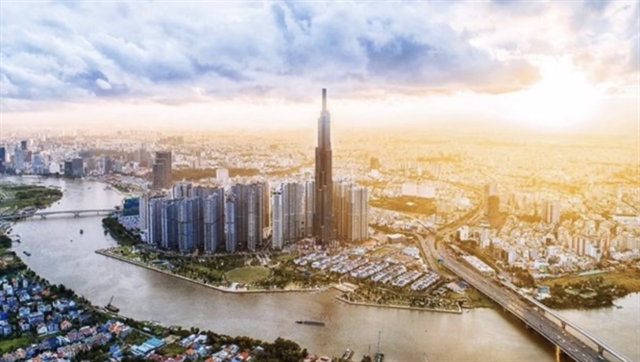 |
|
HCM City is striving to become a smart urban area by 2030. — Photo courtesy of vneconomy |
HCM City is focusing on digital transformation to develop itself into a smart urban area by 2030.
So far, the city has successfully launched a centralised IT infrastructure for State agencies on the cloud computing platform at the city’s database centre. Security has been ensured for valuable information and network facilities of State agencies and Party units.
The city is one of the first localities in the country to successfully integrate a system of electronic authentication and identification for citizens with the National Population Database managed by the Ministry of Public Security, the National Public Service e-portal, the Database on Administrative Procedures managed by the Government Office, and other essential national databases (social insurance and justice).
Until now, more than 1,000 State departments and organisations, businesses, hospitals, and schools in the city have formed connections to this important system to accelerate the digital transformation process in state management activities and provision of public services to citizens.
By 2030, the city aims to become smart with e-government, e-enterprises and an electronic society.
The digital economy is expected to account for 40 per cent of the city’s GRDP by 2030.
The southern hub has carried out an array of activities to bolster digital transformation in 2023.
Digital Transformation Week 2023 with the theme “Digital data mining, successful digital transformation” was organised in the city from October 17-18 with a wide range of workshops on digital transformation and development of urban areas as well as an exhibition of outstanding digital platforms and solutions.
Võ Thị Trung Trinh, Deputy Director of the municipal Department of Information and Communications, said the city would work to form an integrated database that serves the digital transformation process in the city and the country at large.
The city would focus on developing three main data groups by 2025: citizens (administrative, civil status, health, education, and welfare), finance-business (analysis and statistics of budget revenue and expenditure, public investment management, enterprises, and household businesses), and land-urban areas (geographical information, construction, transport, and planning and architecture), she added.
According to the Ministry of Information and Communications, the city ranked second out of 63 provinces and centrally-run cities in the country according to the 2022 digital transformation index (DTI).
The digital economy contributed about 18.7 per cent of the city's gross regional domestic product (GRDP), equivalent to VNĐ1.5 quadrillion (US$61.5 billion) last year.
This was the third consecutive year that the city was highly ranked based on its effective digital transformation programmes. — VNS